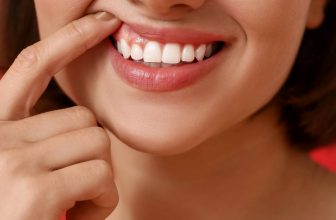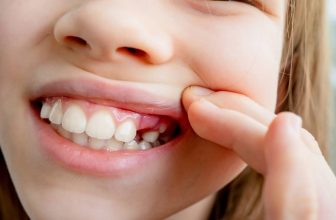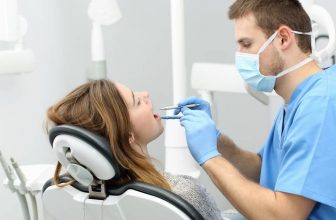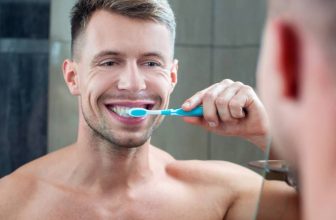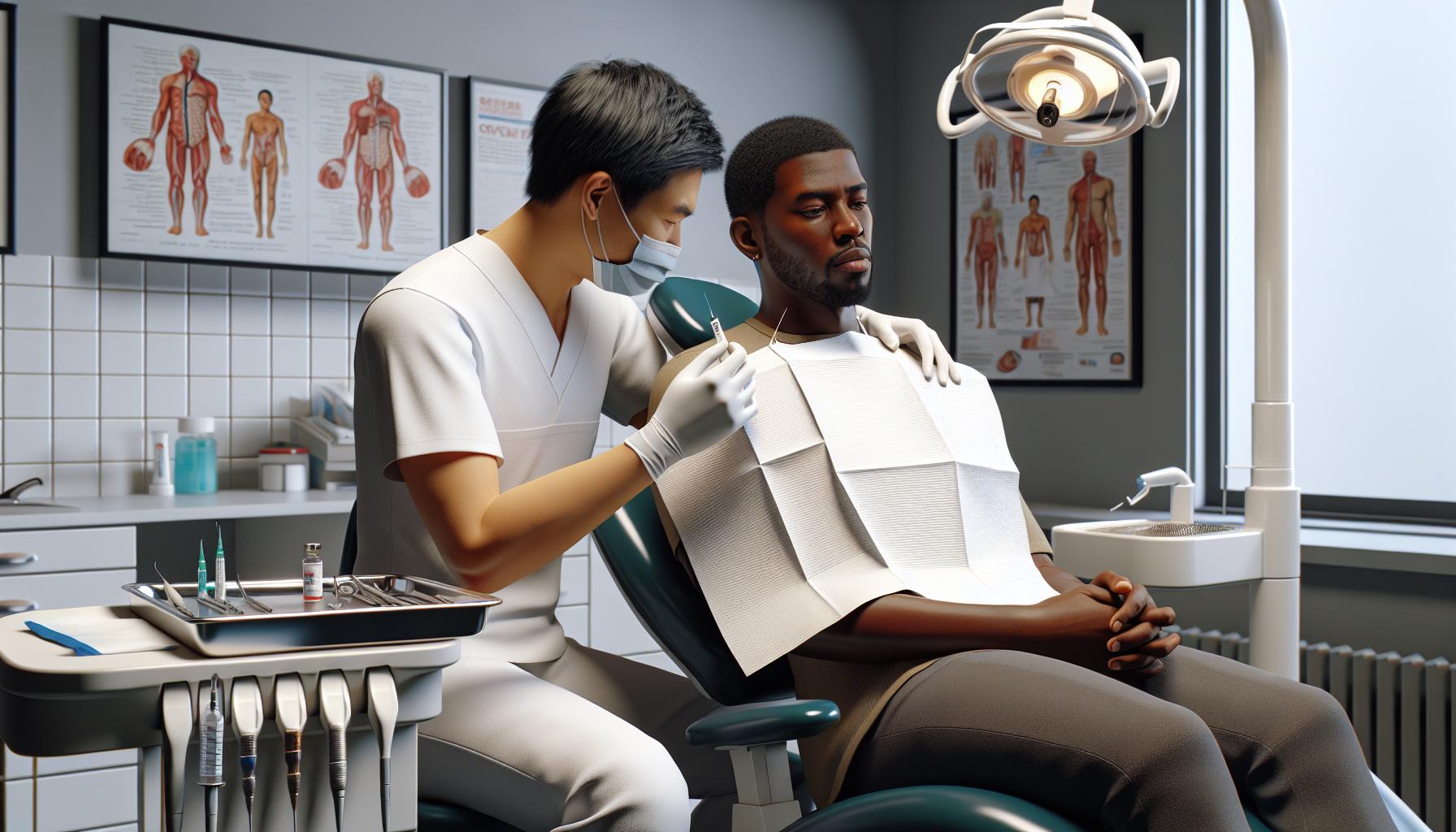
Ever found yourself staring at a dentist appointment on your calendar, wondering, “Can you eat before Novocaine?” Trust me, I’ve been there. The thought of facing dental work on an empty stomach can be as daunting as the procedure itself. But don’t worry, I’ve got the scoop on whether you can sneak in that pre-appointment snack without any repercussions.
Navigating the dos and don’ts of pre-dental care can feel like solving a riddle. After all, who wants to risk a grumbling stomach while getting a filling? Let’s dive into the nitty-gritty of eating before Novocaine so you can walk into that appointment with confidence—and maybe even a full belly.
Key Takeaways
- Understanding Novocaine: Novocaine is a local anesthetic used in dental procedures to block nerve signals and ensure a pain-free experience. It acts quickly and lasts for about 30 to 60 minutes.
- Pre-Appointment Guidance: Eating before getting Novocaine can lead to nausea, risk of aspiration, and potential bacterial infections. Fasting minimizes these risks and helps ensure a smooth procedure.
- Expert Advice: Dental professionals generally recommend fasting for at least two hours before a dental appointment. Specific recommendations can vary based on individual health conditions, so it’s essential to discuss any medical history with your dentist.
- Possible Side Effects: Numbness, tingling, swelling, and sometimes dizziness can occur after Novocaine administration. Communicating any discomfort to your dentist ensures better management and a more comfortable experience.
- Benefits of Fasting: Fasting before the procedure reduces the chances of complications like nausea and infections, creating a more optimal environment for dental work. It’s particularly advantageous for individuals with chronic health issues.
Understanding Novocaine
Novocaine, or procaine, is a local anesthetic commonly used in dental procedures. Dentists use it to numb specific areas, allowing for pain-free treatments. This anesthetic blocks nerve signals, preventing pain during procedures like fillings and extractions.
An injection administers Novocaine, typically near the treatment site. The anesthetic takes effect quickly, usually within minutes. Its effects last between 30 to 60 minutes, though this can vary depending on the dosage and the individual’s metabolism.
Patients often worry about potential side effects. Common ones include temporary numbness, tingling, or slight swelling at the injection site. Rarely, some patients may experience dizziness or an allergic reaction. Discussing any concerns with your dentist helps address these issues and ensures a safe experience.
It’s helpful to know how Novocaine interacts with other substances. For example, some medications might affect its efficacy. If you’re on any prescription drugs, disclose this to your dentist beforehand.
Understanding Novocaine’s role and effects aids in a smoother dental visit. This knowledge can alleviate anxiety and help you better prepare for your appointment.
The Procedure of Receiving Novocaine

What to Expect During the Appointment
Before the dentist begins the procedure, they’ll prepare the Novocaine. Expect a brief discussion about your medical history and any allergies. They’ll then apply a topical anesthetic to numb the injection site. This step reduces discomfort from the Novocaine needle.
Once the area is numb, the dentist injects the Novocaine into your gum tissue. Expect a few seconds of mild pressure. The numbing effect takes a few minutes to set in, ensuring you won’t feel pain during the procedure. Your lips, tongue, and surrounding area may feel swollen or tingly.
During the procedure, the dentist monitors your reaction to the anesthesia. It’s crucial to communicate any discomfort. They can administer more Novocaine if needed. This step ensures optimal comfort and reduces anxiety.
Common Side Effects of Novocaine
After receiving Novocaine, you may experience numbness that lasts a few hours. This numbness might extend to your lips, tongue, and cheek. Difficulty speaking clearly and eating may occur until the anesthetic wears off.
A common side effect is a tingling or “pins and needles” sensation as the numbing fades. Some people may feel slight swelling or bruising at the injection site. Sensitivity around the numbed area is normal and should subside soon.
Less common side effects include dizziness or a headache. If these occur, inform your dentist immediately. In rare cases, an allergic reaction may happen. Look out for symptoms like itching, rash, or difficulty breathing and seek medical help if needed.
By understanding these potential side effects, you can manage your expectations and feel more at ease during your dental visit. Communicate openly with your dentist to ensure a smooth experience.
Eating Before Novocaine: What You Need to Know
Risks of Eating Before Novocaine
Eating before getting Novocaine can lead to several issues. Food in the stomach might cause nausea during the procedure, especially since some people have stronger reactions to anesthesia. A full stomach elevates the risk of aspiration, where stomach contents can accidentally enter the lungs if you become nauseous. This can lead to serious complications. Dental professionals often caution against eating heavy meals before the appointment to avoid these risks. Food residue in the mouth may also increase the risk of bacterial infection during the dental procedure. Patients with certain conditions like GERD can have aggravated symptoms if they eat before an appointment requiring Novocaine. Informing your dentist about any medical conditions helps them provide specific advice tailored to your health needs.
Benefits of Fasting Before the Appointment
Fasting before your dental appointment can provide several advantages. An empty stomach minimizes the chances of nausea or vomiting from Novocaine. This helps keep the procedure smooth and reduces anxiety about potential complications. It also ensures a cleaner oral environment, which helps reduce the risk of infection during your dental work. Dentists can work more effectively without worrying about food particles in your mouth. Patients often feel more comfortable knowing they’ve minimized any risks associated with anesthesia. Fasting can be particularly beneficial for individuals with chronic health issues, as it reduces the chances of any unexpected interactions between Novocaine and their condition. Always consult your dentist about the best pre-appointment practices for your situation.
Expert Recommendations

Dental professionals aim to provide the best possible guidance for patient safety and procedure success. General guidelines about eating before receiving Novocaine optimize both comfort and safety.
Dentist and Medical Professional Advice
Most dentists suggest fasting for at least two hours before your appointment if you’re receiving Novocaine. Eating too close to your dental visit can increase aspiration risks, especially for those with certain medical conditions. During your visit, ensure you discuss any specific health concerns with your dentist. They can tailor their advice based on your medical history. Avoiding food helps minimize nausea from swallowing dental materials.
If you have medical conditions like diabetes, communicate this to your dentist. They might modify the fasting period. Consuming light, easily digestible foods hours before your appointment is often recommended. Continuous education and training instill emergency preparedness among dental professionals. They’re equipped with emergency kits and trained in CPR.
Sedation or anesthesia require stricter guidelines and continuous monitoring. It’s crucial to adhere to pre-appointment guidelines for these procedures. Proper pre-appointment practices can enhance patient safety, ensuring a successful dental visit. Following dentist recommendations optimizes oral care and overall health.
Conclusion
Navigating pre-dental care guidelines is essential for a smooth and safe experience during procedures involving Novocaine. By fasting for at least two hours before your appointment, you can minimize risks like nausea and aspiration. Always consult with your dentist about any specific health concerns you have, especially if you have conditions like diabetes. This ensures your care is tailored to your needs. Following these guidelines not only contributes to a successful dental visit but also supports your overall health.
Frequently Asked Questions
Can I eat before receiving Novocaine at my dental appointment?
It’s recommended to fast for at least two hours before your appointment to avoid nausea and other potential complications. Always consult with your dentist for personalized advice, especially if you have medical conditions like diabetes.
What is Novocaine and how does it work?
Novocaine is a local anesthetic used to numb a specific area during dental procedures. It works by temporarily blocking nerve signals in the targeted area, preventing pain sensations.
What are the side effects of Novocaine?
Common side effects of Novocaine include mild swelling, bruising, tingling, or numbness around the injection site. Rarely, some may experience allergic reactions. Always inform your dentist of any allergies or health concerns.
Are there any interactions between Novocaine and other substances?
Yes, some medications and substances can interact with Novocaine, potentially increasing side effects or reducing effectiveness. Inform your dentist of all medications and supplements you’re taking.
Why is it important to follow pre-dental care guidelines?
Following pre-dental care guidelines, like fasting before the appointment, helps prevent complications such as nausea, aspiration risks, and infections, ensuring a smoother and safer dental procedure.
How should patients with diabetes prepare for a dental procedure involving Novocaine?
Patients with diabetes should discuss specific guidelines with their dentist, who may adjust fasting periods to avoid blood sugar issues. Always keep your healthcare team informed for the best personalized care.
What measures do dentists take to ensure safety during procedures involving Novocaine?
Dentists receive continuous education and training to handle emergencies and follow best practices for sedation and anesthesia, ensuring patient safety through well-established pre-appointment guidelines and protocols.



